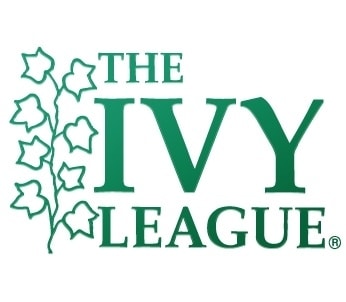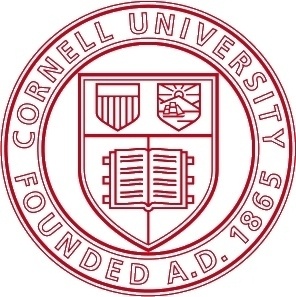Check out this short video about how to choose a college major.
Should You Study Business in the Ivy League–Or Anywhere Else?
If your goal is to go to Wall Street and spend for first few years post-undergrad working for one of the bulge bracket investment banks, then, yes, studying business in the Ivy League makes a lot of sense. The Ivy League is where these banks recruit from. There are so many alumni network connections you will make as you start down the internship and job search process. There will also be multiple opportunities in areas like finance to work for hedge funds, private equity, and large multinational corporations.
But will it be your ticket to riches and success? Possibly if this is all you care about rather than work/life balance. But there are no certainties here. A business major–by itself–will not make you more money than that philosophy major across the dormitory hall from you. Similarly, going to an Ivy League school will not necessarily make you more money than if you went to a liberal arts college or a state school. Average salaries published by colleges and third party sites are not indicative of your potential success. They should not determine your interests and they definitely do not reflect your aptitudes or abilities.
As you decide what to major in, think about what keeps you engaged, what interests, you, and where your abilities are the strongest. Also remember that no matter what field you go into in today’s economy, you will be “in business.” At some point, you’ll probably have to learn some of the fundamentals of business. Maybe you’ll learn them in college. Maybe you’ll even learn them in the Ivy League. Or somewhere else.
But to put it in Yoda speak, “learn you will.”
Need help with the college admissions process?
If you need assistance in the college admissions process, please contact us for a complimentary consultation. At Great College Advice, we provide personalized college consulting focused on helping make the process of preparing, selecting, and applying to college more successful, less stressful, and more fun.
Since 2007, the expert team of college admissions consultants at Great College Advice has provided comprehensive guidance to thousands of students from across the United States and over 45 countries across the world. Great College Advice has offices in Colorado, New Jersey, Chicago, North Carolina and Massachusetts.
In addition to our one-on-one counseling, Great College Advice extends its support through one of the most active and resource-rich Facebook Groups for college-bound students and their families: College Admissions Experts. With nearly 100,000 members—students, parents, and experienced counselors—this vibrant forum offers peer support and expert advice like no other.
So, studying business in the Ivy League is your dream? If you want to major in business at an Ivy League university, you may need to broaden your horizons as only Penn and Cornell offer undergraduate degrees in business.
First, a Bit of History
The Ivy League universities are among the oldest in the country. Five of the eight are among the 10 oldest universities in the country:
- Harvard – 1636
- Yale – 1702
- Penn – 1740
- Princeton – 1746
- Columbia – 1754
Brown and Dartmouth were founded a little bit later (in 1746 and 1769, respectively). Cornell is the outlier: it was started in 1846–almost a century and a half after Harvard. As we shall see, this is part of the reason that Cornell looks so very, very different from the other schools with which it plays football.
And that’s the key here: the “Ivy League” is a relatively recent creation. Eight schools got together and created a sports league. So the “league” in Ivy League has nothing to do with academics whatsoever. Like so much in America’s university system, sports is sort of the tail that wags the dog.
The Liberal Arts Focus of the Ivy League
The traditional curricular focus of all the Ivy League schools harkens back to the traditional academic subjects that people like John Adams and Benjamin Franklin studied: philosophy, law, and theology. At the time, of course, “science” was more or less an outgrowth of philosophy, or the inquiry into knowledge. The same was true of mathematics: it was all sort of rolled into the study of the current state of mankind’s knowledge of the world.
So, it wasn’t until the 19th century that Europeans and Americans began thinking of teaching university courses that were directly relevant to both agriculture (where most Americans were employed at the time) and to the advances of the Industrial Age (and the rise of engineering as a discipline). Cornell, for example, still has a solid agricultural program, as well as a veterinary school. A large part of Cornell’s mission was (and still is, to an extent) to improve the agricultural yield of our farmers. (This was true of all the so-called “land grant” universities).
A Professional Focus is Relatively New for the Ivy League
So it wasn’t until much later that universities began teaching subjects directly related to the economic development of the country and to the professional development of individuals. Prior to this, education at Ivy League schools was limited to the economic and political elites. Then, the subjects taught were considered most relevant to being an “educated person.” Graduates of the Ivies might very well go on to take their place (by birthright, mostly) in the upper-class establishment of American society.
Business: Today’s Educational Imperative?
Fast forward to today. The educational priorities of the American public have shifted. There are a lot of reasons for the shift.
- College has become so expensive–especially at selective institutions–that families are more conscious of the “return on investment or ROI”: what will be the short and long-term economic payoff of earning this degree?
- A continuing national philosophy that is best expressed by the words of Calvin Coolidge: “The business of America is business.”
- Majors like history, English, and philosophy are now considered “useless” by most Americans. In other words, even elites are looking askance at the idea that these disciplines can train the mind, improve one’s ability to think analytically and to tap into a knowledge of history and culture as a way to guide humanity forward.
- Americans have an increasing skepticism about knowledge and elitism in general (even though the majority of our presidents and many of our political leaders are graduates of Ivy League institutions).
Today, the most popular and common major in American universities is business. Over half of Americans graduate with a business degree of some sort.
Can You Study Business in the Ivy League?
6 of the 8 Ivies do not offer undergraduate majors in business – Dartmouth, Brown, Harvard, Yale, Princeton, and Columbia. However, Penn (Wharton) and Cornell offer undergraduate degrees in business. Of course, some of these do offer MBAs (Harvard, Yale, Dartmouth, Columbia, Penn (Wharton) and Cornell).
Study Business in the Ivy League at the University of Pennsylvania
The Wharton School of Business at Penn offers degrees in business. Interested students submit an application direction to Wharton. While there are some joint programs that link liberal arts majors with business, there is not a lot of intellectual or curricular cross-over between Penn’s College of Arts and Sciences and the Wharton School.
Along with that, it’s also important to note that Penn also has a School of Nursing and a School of Engineering and Applied Sciences.
The Wharton School Concentrations
- Accounting
- AI for Business
- Behavioral Economics
- Business Economics and Public Policy
- Business Analytics
- Entrepreneurship & Innovation
- Environmental Management and Policy
- Finance
- Health Care Management and Policy
- Leading Across Differences
- Legal Studies and Business Ethics
- Management
- Marketing
- Marketing and Communication
- Operations, Information, and Decisions
- Marketing and Operations Management
- Real Estate
- Retailing
- Statistics
Each concentration above requires only four courses, so it’s easy to switch around or pursue more than one. Clearly, Penn has a wide range of business offerings, which makes it even more attractive to students who want to get study business in the Ivy League.
Study business in the Ivy League at Cornell
Cornell is the other school at which you can study business in the Ivy League. Cornell now has the SC Johnson College of Business, which is a unification of two other programs at Cornell – The Dyson School and the Nolan School of Hotel Administration.
The Dyson School
The first program is the Charles H. Dyson School of Applied Economics and Management, which offers (naturally enough) a BS in Applied Economics and Management. Despite its history and anomalous institutional structure, the curriculum at Dyson mirrors more or less what one would find at any college of business for undergrad. The core requirements are supplemented by at least one concentration.
- Accounting
- Applied Economics and Management
- Business Analytics
- Entrepreneurship
- Finance
- Food Business Management
- International Markets and Development
- Marketing
- Strategy
- Sustainable Business and Economic Policy
The other alternative for studying business at Cornell is to zero in on a particular business–one in which Cornell has particular strength: hotel administration. Cornell’s School of Hotel Administration offers a BS in Hotel Administration.
Studying Business in the Ivy League: Some Alternatives
If you decide not to attend either Penn’s Wharton School or Cornell’s Johnson School, then how else might you study business in the Ivy League? Here are some ideas.
Study economics
Perhaps the best alternative–academically speaking–if you want to study something somewhat related to business, then you could take up the “dismal science” of economics. In fact, a larger and larger proportion of Ivy League students are studying economics these days.
Join business-oriented clubs and societies
Most of the Ivy League colleges have a variety of business-oriented activities on campus, from incubators for entrepreneurs to investment and finance clubs, to marketing and communications. Look for these on the student activities pages of the college’s website.
Become a leader in any club or association
Becoming a business leader is about exercising leadership in a particular context. But leadership is something one can learn in a variety of contexts. So don’t pass up an opportunity to develop that leadership in any way you can. Whether you lead groups of students in sports, the arts, community service, religious organizations, or any other sort of club or association, you will be cultivating the sort of skills and habits that can make you a leader in the business world. And most clubs will need certain kinds of abilities, including accounting and management. So if you are particularly excited about those activities, step up and lead!
Check out this short video about how to choose a college major.
Should You Study Business in the Ivy League–Or Anywhere Else?
If your goal is to go to Wall Street and spend for first few years post-undergrad working for one of the bulge bracket investment banks, then, yes, studying business in the Ivy League makes a lot of sense. The Ivy League is where these banks recruit from. There are so many alumni network connections you will make as you start down the internship and job search process. There will also be multiple opportunities in areas like finance to work for hedge funds, private equity, and large multinational corporations.
But will it be your ticket to riches and success? Possibly if this is all you care about rather than work/life balance. But there are no certainties here. A business major–by itself–will not make you more money than that philosophy major across the dormitory hall from you. Similarly, going to an Ivy League school will not necessarily make you more money than if you went to a liberal arts college or a state school. Average salaries published by colleges and third party sites are not indicative of your potential success. They should not determine your interests and they definitely do not reflect your aptitudes or abilities.
As you decide what to major in, think about what keeps you engaged, what interests, you, and where your abilities are the strongest. Also remember that no matter what field you go into in today’s economy, you will be “in business.” At some point, you’ll probably have to learn some of the fundamentals of business. Maybe you’ll learn them in college. Maybe you’ll even learn them in the Ivy League. Or somewhere else.
But to put it in Yoda speak, “learn you will.”
Need help with the college admissions process?
If you need assistance in the college admissions process, please contact us for a complimentary consultation. At Great College Advice, we provide personalized college consulting focused on helping make the process of preparing, selecting, and applying to college more successful, less stressful, and more fun.
Since 2007, the expert team of college admissions consultants at Great College Advice has provided comprehensive guidance to thousands of students from across the United States and over 45 countries across the world. Great College Advice has offices in Colorado, New Jersey, Chicago, North Carolina and Massachusetts.
In addition to our one-on-one counseling, Great College Advice extends its support through one of the most active and resource-rich Facebook Groups for college-bound students and their families: College Admissions Experts. With nearly 100,000 members—students, parents, and experienced counselors—this vibrant forum offers peer support and expert advice like no other.




